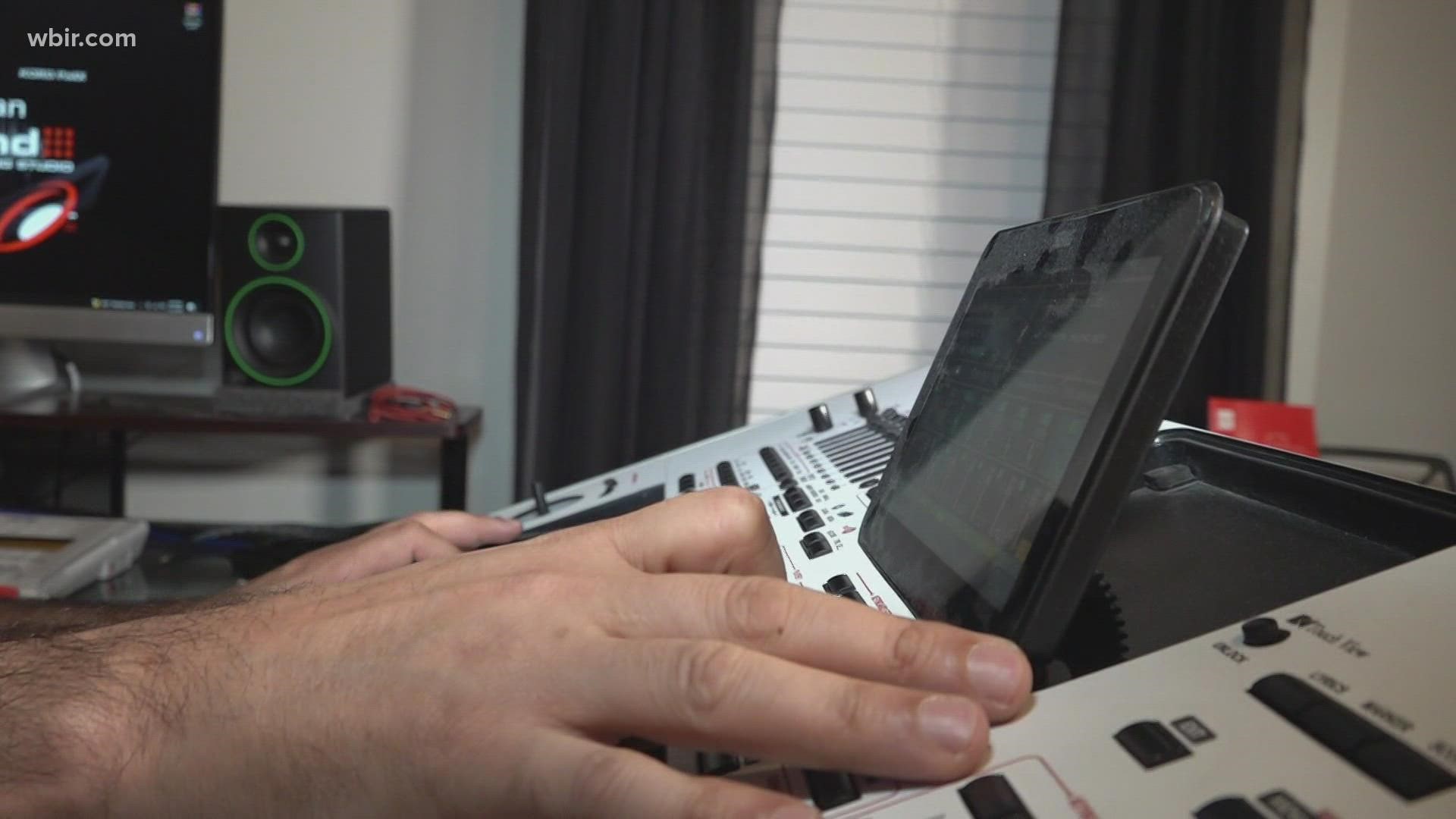MURFREESBORO, Tenn. — Tennessee is home to various traditions of different cultures, but some are at the risk of being lost.
A statewide initiative by the Tennessee Arts Commission aims to preserve rare or endangered traditional art forms.
One of those art forms is traditional Kurdish music.
"I feel like I'm responsible for the music now," explained Kurdish musician and keyboard player Arkan Doski.
Doski moved to Nashville from Kurdistan with his family in 1993, but music had been a part of his family's history long before then.
Fifty years ago in northern Iraq, his father, Jasem Namad, picked up a "saz" for the first time; a Middle Eastern string instrument similar to a guitar.
That's where Namad fell in love with the unique sounds and rhythms of Kurdish music.
Once moving to the United States, however, he was forced to stop playing music for nearly 10 years. It was impossible, he said, to find the traditional instruments he had learned to play back home.
Years later, he was finally able to order an electric "saz" from Germany. He started playing again and made it his mission to teach his son, Doski, the artform.
"I just love doing it,” Doski said.
Doski is Arkan's stage name. It pays tribute to the Kurdish village his music originates from.
He is now one of the most sought-after musicians in Tennessee. He has performed around the country and even in other parts of the world.
Kurdish music uses a quarter-tone scale and unique rhythms that differentiate it from any other musical form.
Doski uses the electric keyboard to create the sounds of several different instruments found in Kurdistan.
To Doski, his music is more than a passion. It's a responsibility.
“I'm responsible for this music right now, in, especially here in the Kurdish community," he said.
Part of the responsibility, he added, is passing the music on to others the way his father passed it down to him.
"Music has always been in my family," he explained. "If I don't teach it to somebody else, it's going to be stuck with me."
Doski's current student is his own 8-year-old son Ayan Muhammed.
“I want to be just like my dad and play piano like him," Ayan said.
Doski and Ayan are part of the state's Traditional Arts Apprenticeship Program, through which Ayan will learn to carry on the family tradition.
“We have traditions that date back centuries. We also have newer traditions that might be old themselves, but are newer to Tennessee," explained Evangeline Mee, a traditional arts specialist at the Tennessee Arts Commission.
The program aims to preserve the state's diverse folklife traditions.
“A lot of these traditions are ones that maybe are down to two practitioners in the whole state," Mee explained. "This program seeks to support those rare and endangered traditions from dying out.”
That is precisely Doski's mission: ensuring the music doesn't stop with him.
“Now that I have somebody else, my son, that's interested, I feel like it's my, my job to pass it on to him," Doski added. "That way the music doesn't stop where I'm at. It just keeps going in my family."
Nashville is home to the largest Kurdish population in the United States.
Doski and his family currently reside in Murfreesboro, roughly 20 minutes outside of the Music City.

